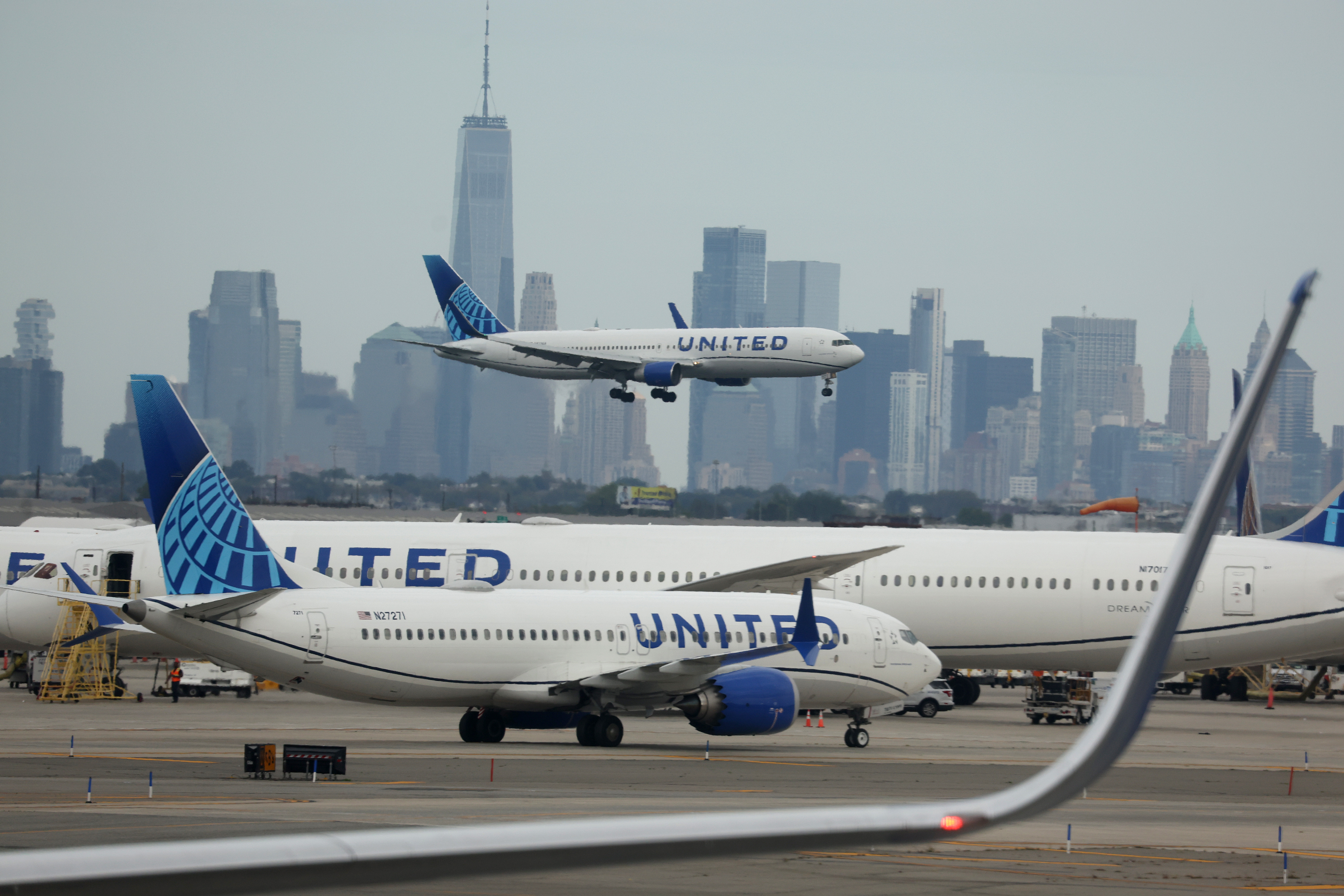
With Thanksgiving less than two weeks away, Walmart, Target, Aldi and other grocers are competing for a place on holiday tables with turkey dinner deals and other promotions to tempt Americans who haven't recovered from recent food price inflation.
Walmart, the nation’s largest food retailer, first bundled the makings of a traditional turkey feast into a meal deal three years ago. This year, the 29-item offer, which includes a frozen turkey and ingredients for side dishes, costs less than $55 and is intended to serve eight. That calculates to less than $7 per person.
Target’s version for four people costs $20, $5 less than the company's 2023 Thanksgiving meal, and includes a frozen turkey, stuffing mix and canned green beans and canned jellied cranberry sauce. Aldi’s offers a frozen Butterball turkey with gravy mix as well as pumpkin ingredients for pumpkin pie and ingredients for side dishes like sweet potato casserole. The German-owned supermarket chain priced it for $47 and said that was less than it charged for the same items in 2019.
Meijer, with more than 500 supercenters in the Midwest, jumped into the fray last week by offering a frozen turkey for 49 cents per pound or lower and a $37 Thanksgiving family meal for a group of four to six.
Get top local stories in Connecticut delivered to you every morning. >Sign up for NBC Connecticut's News Headlines newsletter.
Comparing the respective menus to determine which represents the best value is difficult since recommended serving sizes and contents vary. But the promotions, introduced earlier than ever and at a time when many households remain put off by higher prices, underscore the importance of Thanksgiving to grocers, analysts said.
While consumer perceptions of grocery prices is based on the cost of staples like eggs and milk, “the Thanksgiving meal has become essentially a new benchmark,” Jason Goldberg, chief commerce strategy officer at Publicis Groupe, a global marketing and communications company.
It's the occasion for the second-largest holiday meal for retailers behind the feasts that accompany the winter holidays. Compared with an average, Thanksgiving meal shopping delivered a $2.4 billion sales lift during the week before and after the holiday last year, market research firm Circana said. Shopping for Christmas, Hanukah and New Year's Day meals gave stores a $5.3 billion sales uplift compared with an average week, Circana said.
Walmart launched its offer on Oct. 14, two weeks earlier than last year and plans to make it available through Dec. 24. The two bundles the retailer offered last year contained different items, but Walmart said this year’s selected products cost 3.5% less.
Joan Driggs, a Circana vice president, expects shoppers to buy items on sale for half of what they need to prepare Thanksgiving dinner meal. That's double the amount from 2022, when retailers pulled back on promotions due to limited supplies left over from the coronavirus pandemic.
Consumers still aren't seeing discounts as deep as the ones grocers trotted out in pre-pandemic 2019, Driggs said. To attract customers, retailers therefore are creating strategies like meal bundles, which may “lessen the stress” for shoppers since they show the cost per person, she said.
Angel Rosario-Sanchez, 24, a New Jersey resident who was at a Walmart store in Secaucus on Wednesday, said he planned to have Thanksgiving with his friends but had not shopped for groceries yet. Seeing the big displays of Thanksgiving products in the store made him want to return to buy some.
"I always count on Walmart for deals,” said Rosario-Sanchez, who usually selects food from Walmart’s lower-end, Great Value brand. “Inflation is too much, and it needs to go back to where it originally was.”
For the past two years, Walmart, Target and others have seen price-conscious shoppers shift more of their purchases to store label brands. In response, retailers have improved their selections or created new food lines brands.
Walmart in April launched Bettergoods, its biggest store-label food brand in 20 years in terms of the breadth of items, to appeal to younger customers who aren't loyal to national brands and want chef-inspired foods that are more affordably priced.
But store brands aren't necessarily cheaper.
Wells Fargo’s Agri-Food Institute, a team of national industry advisors that provides economic insights and research, compared the costs of store brands and national name brands for a typical Thanksgiving dinner. The name-brand versions of cranberry sauce were less expensive than the store brands the team inventoried, while the name brand pumpkin pies versus store brand versions were the same price.
Robin Wenzel, the head of the Wells Fargo institute, thinks the makers of some familiar brands realized they “overshot” with some of their post-pandemic price increases and are retrenching.
The Agri-Food Institute's 10-person Thanksgiving menu includes turkey, stuffing, salad, cranberries, dinner rolls and pumpkin pie. Using all name-brand would cost $90 this year, 0.5% less than last year. Preparing the same meal with store-branded food would cost $73, or 2.7% more than a year ago.
That gives shoppers the option to mix and match, Wenzel said.
The latest government snapshot on inflation showed grocery prices rose just 0.1% from September to October and are up just 1.1% over the past year. That’s providing some relief to consumers after food costs surged roughly 23% over the past three years.
For main Thanksgiving entrées and beverages, prices are easing, but given the spike in food prices in recent years, consumers may or may not feel it.
A 15-item Thanksgiving meal costs an average of $65.51 this year, down nearly 3% from last year but 42% higher overall than in 2019, retail intelligence provider Datasembly said. For example, a 12-ounce can of jellied cranberry sauce averaged $2.89, which is 1% lower than a year ago but still 90% higher compared with 2019.
A 10-pound frozen turkey averages $10.40 this year, a 19% decrease from 2023 but still 6% higher than in 2019, the data firm said. Prices for some Thanksgiving products are still going up: A 30-ounce box of pumpkin pie mix now costs an average of $5.56, up 6% compared with a year ago and nearly 70% more than five years ago, according to Datasembly.
Like many food retailers, Walmart put a mix of store and name-brand products into its Thanksgiving bundle. The meal deal includes Ocean Spray canned jellied cranberry sauce, and green beans and dinner rolls from the in-house Great Value line. The bundle also includes a white whole frozen turkey from the national brand Shady Brook Farms, and fresh items like a 5-pound pound bag of russet potatoes.
Still, plenty will bypass the bundles at Walmart and elsewhere.
While visiting the Walmart in Secaucus, New Jersey, Nadia Rivest, 70, said she already had shopped at the discounter to buy turkey, fish and chicken for her Thanksgiving meal. But she was only interested in buying fresh items, not canned goods.
“I like red pepper, red tomatoes, something fresh,” she said.




